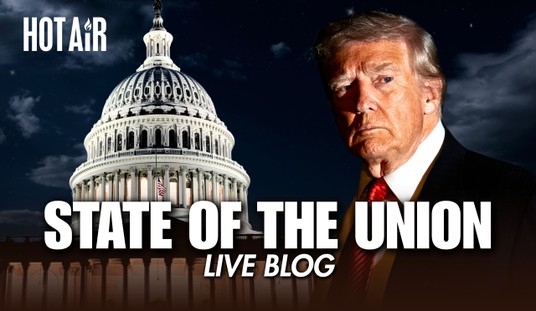Professional historians are outraged over an essay that was published last week in the magazine of the American Historical Association. The author of the piece is the current president of the AHA, James H. Sweet. Sweet teaches at the University of Wisconsin in Madison and his focus is on the “social and cultural histories of Africans in the Atlantic world.” Before we get to the outrage his essay caused, let’s first look at the piece itself. It’s focus is “presentism” something he sees as a threat to the proper approach to history:
As the discipline has become more focused on the 20th and 21st centuries, historical analyses are contained within an increasingly constrained temporality. Our interpretations of the recent past collapse into the familiar terms of contemporary debates, leaving little room for the innovative, counterintuitive interpretations.
This trend toward presentism is not confined to historians of the recent past; the entire discipline is lurching in this direction, including a shrinking minority working in premodern fields. If we don’t read the past through the prism of contemporary social justice issues—race, gender, sexuality, nationalism, capitalism—are we doing history that matters? This new history often ignores the values and mores of people in their own times, as well as change over time, neutralizing the expertise that separates historians from those in other disciplines. The allure of political relevance, facilitated by social and other media, encourages a predictable sameness of the present in the past. This sameness is ahistorical, a proposition that might be acceptable if it produced positive political results. But it doesn’t.
Sweet then turns to the 1619 Project. His critique isn’t intended to be scathing. In fact, it seems clear he didn’t realize how much outrage this commentary would create.
When I first read the newspaper series that preceded the book, I thought of it as a synthesis of a tradition of Black nationalist historiography dating to the 19th century with Ta-Nehisi Coates’s recent call for reparations. The project spoke to the political moment, but I never thought of it primarily as a work of history. Ironically, it was professional historians’ engagement with the work that seemed to lend it historical legitimacy. Then the Pulitzer Center, in partnership with the Times, developed a secondary school curriculum around the project. Local school boards protested characterizations of Washington, Jefferson, and Madison as unpatriotic owners of “forced labor camps.” Conservative lawmakers decided that if this was the history of slavery being taught in schools, the topic shouldn’t be taught at all. For them, challenging the Founders’ position as timeless tribunes of liberty was “racially divisive.” At each of these junctures, history was a zero-sum game of heroes and villains viewed through the prism of contemporary racial identity. It was not an analysis of people’s ideas in their own time, nor a process of change over time.
Finally, he describes a recent trip to Ghana in which he saw a black family from America having breakfast with a copy of the 1619 Project on their table. Later as he toured a historical site called Elmina Castle he was struck by the degree to which the international history of the place had been narrowed down, seemingly for the consumption of African-American tourists.
Our guide gave a well-rehearsed tour geared toward African Americans. American influence was everywhere, from memorial plaques to wreaths and flowers left on the floors of the castle’s dungeons. Arguably, Elmina Castle is now as much an African American shrine as a Ghanaian archaeological or historical site…
Yet as a historian of Africa and the African diaspora, I am troubled by the historical erasures and narrow politics that these narratives convey. Less than one percent of the Africans passing through Elmina arrived in North America. The vast majority went to Brazil and the Caribbean. Should the guide’s story differ for a tour with no African Americans?…
The erasure of slave-trading African empires in the name of political unity is uncomfortably like right-wing conservative attempts to erase slavery from school curricula in the United States, also in the name of unity. These interpretations are two sides of the same coin. If history is only those stories from the past that confirm current political positions, all manner of political hacks can claim historical expertise.
The rest of the essay is an attack on presentism in recent Supreme Court decisions written by Justice Thomas and Justice Alito. Perhaps Sweet thought that by ending with an attack on conservatives on the Supreme Court readers would be willing to overlook his criticism of the 1619 Project. But he was clearly wrong about that. I’d prefer to show you some of the tweets reacting to the essay but many of the primary sources (so to speak) have been hidden away by people protecting their tweets. So here’s a description of what happened from economist Phillip W. Magness at the American Institute for Economic Research. It’s worth noting that Magness has been a frequent critic of the 1619 Project.
Within moments of his column appearing online, all hell broke loose on Twitter.
Incensed at even the mildest suggestion that politicization is undermining the integrity of historical scholarship, the activist wing of the history profession showed up on the AHA’s thread and began demanding Sweet’s cancellation. Cate Denial, a professor of history at Knox College, led the charge with a widely-retweeted thread calling on colleagues to bombard the AHA’s Executive Board with emails protesting Sweet’s column. “We cannot let this fizzle,” she declared before posting a list of about 20 email addresses.
Other activist historians joined in, flooding the thread with profanity-laced attacks on Sweet’s race and gender as well as calls for his resignation over a disliked opinion column. The responses were almost universally devoid of any substance. None challenged Sweet’s argument in any meaningful way. It was sufficient enough for him to have harbored the “wrong” thoughts – to have questioned the scholarly rigor of activism-infused historical writing, and to have criticized the 1619 Project in even the mildest terms…
Other activist historians such as the New School’s Claire Potter retorted that the 1619 Project was indeed scholarly history, insisting that “big chunks of it are written by professional, award-winning historians.” Sweet was therefore in the wrong to call it journalism, or to question its scholarly accuracy. Potter’s claims are deeply misleading. Only two of the 1619 Project’s twelve feature essays were written by historians, and neither of them are specialists in the crucial period between 1776-1865, when slavery was at its peak. The controversial parts of the 1619 Project were all written by opinion journalists such as Hannah-Jones, or non-experts writing well outside of their own competencies such as Matthew Desmond.
Jamelle Bouie’s tweet about this is still up. This was apparently retweeted by Nikole Hannah Jones.
bold take from [checks byline] the president of AHA that race, gender, sexuality, nationalism and capitalism are “contemporary social justice issues” which have been imposed on the study of history https://t.co/z8zXG8ZY1U pic.twitter.com/68FWwWMwzd
— b-boy bouiebaisse (@jbouie) August 17, 2022
The result of all this was that two days after the essay appeared, Sweet had offered an apology which now sits atop the essay.
My September Perspectives on History column has generated anger and dismay among many of our colleagues and members. I take full responsibility that it did not convey what I intended and for the harm that it has caused. I had hoped to open a conversation on how we “do” history in our current politically charged environment. Instead, I foreclosed this conversation for many members, causing harm to colleagues, the discipline, and the Association.
A president’s monthly column, one of the privileges of the elected office, provides a megaphone to the membership and the discipline. The views and opinions expressed in that column are not those of the Association. If my ham-fisted attempt at provocation has proven anything, it is that the AHA membership is as vocal and robust as ever. If anyone has criticisms that they have been reluctant or unable to post publicly, please feel free to contact me directly.
I sincerely regret the way I have alienated some of my Black colleagues and friends. I am deeply sorry. In my clumsy efforts to draw attention to methodological flaws in teleological presentism, I left the impression that questions posed from absence, grief, memory, and resilience somehow matter less than those posed from positions of power. This absolutely is not true. It wasn’t my intention to leave that impression, but my provocation completely missed the mark.
Once again, I apologize for the damage I have caused to my fellow historians, the discipline, and the AHA. I hope to redeem myself in future conversations with you all. I’m listening and learning.
One of the historians critical of the piece was pretty blunt about why Sweet shouldn’t have written it in the first place.
One of my early critiques of the anti-1619 literature from the older generation of tenured historians wasn't that the 1619 Project is sacrosanct — it very clearly isn't — but the tone and stridency of their critiques was very clearly going to be weaponized by the right.
— David Austin Walsh (@DavidAstinWalsh) August 20, 2022
And all of this is very much predictable!
What I find so incredibly frustrating is that there's a particular subset of tenured historians who seem willfully blind to the predictable political consequences of their public interventions.
— David Austin Walsh (@DavidAstinWalsh) August 20, 2022
Quite frankly, you shouldn't be the president of a major scholarly association if you don't understand the inherent political implications of your public statements and their likely consequences.
— David Austin Walsh (@DavidAstinWalsh) August 20, 2022
In sum: It’s wrong to criticize left-wing journalists writing about history if you know that criticism could be used by the right to discredit those efforts. There are no enemies on the left, regardless of what they say. Jonah Goldberg had a good response to this. Why not criticize the 1619 Project for being strident and shoddy instead of criticizing critics for pointing out it’s strident and shoddy?
Why not criticize the work for being the sort of thing that invites such stridency and is so vulnerable to serious critique? Anti-anti arguments always give too much deference to the thing that invites criticism. Anti-anti-communism, anti-anti-Trump, anti-anti-1619, etc.
— Jonah Goldberg (@JonahDispatch) August 21, 2022
Finally, I have to credit William Jacobsen for making what I think is the key point, one that was overlooked by critics of Sweet’s piece and by Sweet himself. Nikole Hannah Jones herself has previously stated that the 1619 Project was about journalism and narrative, not history. In other words, she has admitted this was exactly the sort of exercise in “presentism” Sweet was saying it was in his essay: “The project spoke to the political moment, but I never thought of it primarily as a work of history.”
Amazing how President of @AHAhistorians attacked for saying what Hannah-Jones said (in a now-deleted moment of candor) – 1619 Project is narrative not history #AHA – Apologize for what? https://t.co/NOTj2NdkHw pic.twitter.com/QcYHtzGh3Z
— William A. Jacobson (@wajacobson) August 21, 2022
Like a lot of things Hannah Jones says on Twitter, those tweets have since been deleted. But I think they are revealing because they suggest that, at base, she agrees with Sweet’s take on her work. At least she did at one point. Again, I don’t see any of Sweet’s critics acknowledging this and, unfortunately, he also didn’t point to it. Instead he quickly backed down and apologized. Experience tells me that won’t quell the outrage. I guess we’ll see if that’s the end of it or if he winds up under additional pressure to resign from his current position as AHA president.









Join the conversation as a VIP Member